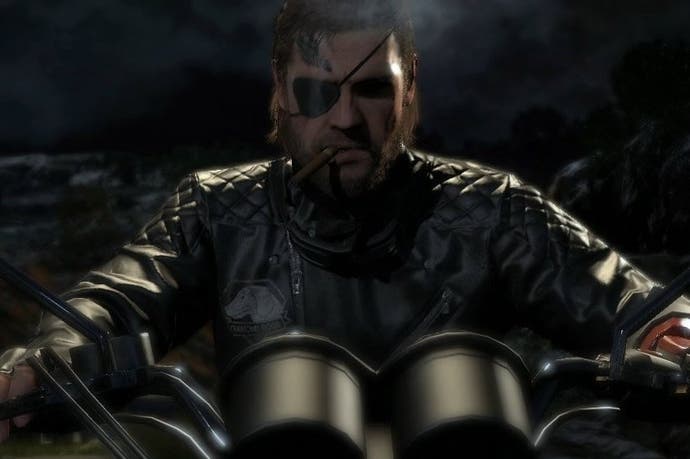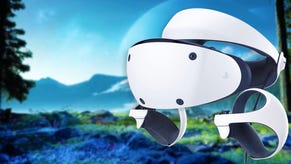When the new becomes old - why 2015 should be a stellar year
Reasons to be cheerful.
At the start of the new year, we once used to run a series looking at the trends we think will emerge over the next 12 months - the ideas and technologies that will go on to shape and define the games we play and how we play them. This year, it didn't seem a particularly fitting way to tackle what lies ahead: not because there won't be grand themes emerging, and not because there won't be new approaches that will dazzle and confound us, but rather because it seems pointless pointing out what's becoming patently obvious.
VR will eke closer to becoming a reality, even if it is one that's likely to be limited to the enthusiastic few for the foreseeable future; new and exciting voices will continue to bubble up through the cauldron of Steam; games will continue to explore new, challenging and increasingly mature subject matter and big budget triple-A games, while diminishing in number, will continue to beg for more of their players time with open worlds that become broader and more bombastic.
There's something so very familiar about it all, but not wearily so. The last few years have seen tumultuous change, the turnover that comes with a new generation spinning more furiously as so many other volatile elements were thrown into the mix. It's been an exciting couple of years, but also - as witnessed by last year's cracked tempers and broken games - it's been a fractured, frequently frustrating era.
At the outset of 2015, there's a calm in place that's not, I think, down entirely to our docile re-emergence from the extended Christmas break. The success of the new consoles has allayed many of the fears we had a couple of years ago that traditional, dedicated gaming hardware was on its way out, and the future's not half as terrifying as some of us thought - even if it has, on occasion throughout 2014, been more than a little disappointing.
Even then - and apologies for being something of an optimist here - the actions from Microsoft and Ubisoft in the wake of last year's biggest debacles are a welcome acknowledgement of what's gone wrong, and while we'll all be exercising a little more scepticism from now on we can hope the messiness of last year won't be repeated again on quite the same scale.
The respite might be brief, but maybe everything has finally settled down, and what we're left with in this brave new world isn't all that different to the one we not too long ago left behind: three consoles vying for space under the television, two of them shadowing each other's steps plus a third that dances to its own delightful tune, and a PC space that continues to be a breeding ground for new, fascinating and quite often strange experiences.
I'm perfectly happy with that, and even happier about the prospect of 12 months in which so much of the drama can move to the sidelines and allow the focus to return on the games that we're playing, and the fantastic things they're capable of. Glancing through the release schedule for 2015, what's so intriguing is how so many of this year's biggest games challenge some of the well-established narratives of the past few years.
Rainbow Six Siege could prove that there's life for Ubisoft beyond the slow, steady conquest of control towers in sprawling open worlds, and inject a little of the dynamism and innovation that made the company such a refreshing presence in the PS2-era, when we were treated with such marvels as Prince of Persia: Sands of Time and Beyond Good and Evil.
Metal Gear Solid 5: The Phantom Pain and Bloodborne could prove that Japan's days as home of the brightest, most fascinating games are far from over - and that, perhaps, they're about to reach a new kind of pinnacle as developers finally absorb and improve upon ideas from western game design. More traditionally, Persona 5 and Xenoblade Chronicles X could mark a new golden era for the JRPG, bolstered by the return of Final Fantasy first with the re-release of Type 0 HD and then, more tantalisingly, with the playable demo of Final Fantasy 15. Elsewhere, Splatoon could prove that Nintendo's ready to deliver new IP in joyously messy, riotous style, while Codename Steam fights the same front on the 3DS.
There might not be the shock of the new in amidst all that, but maybe video games have advanced to the point that we shouldn't expect that any more, even at the outset of a new generation. It's an unfashionable sentiment, but I believe video games now are better than they've ever been before - even if that's a belief that, over the past 12 months, has had to be delivered with a handful of caveats. So here's a trend I predict - with a little hope in my heart - that will define 2015: games will continue to get better, and put behind the fumbling of the past 12 months. In the now familiar face of the new generation, we should be in for a truly vintage year.





-3-31-23-screenshot.png?width=291&height=164&fit=crop&quality=80&format=jpg&auto=webp)





